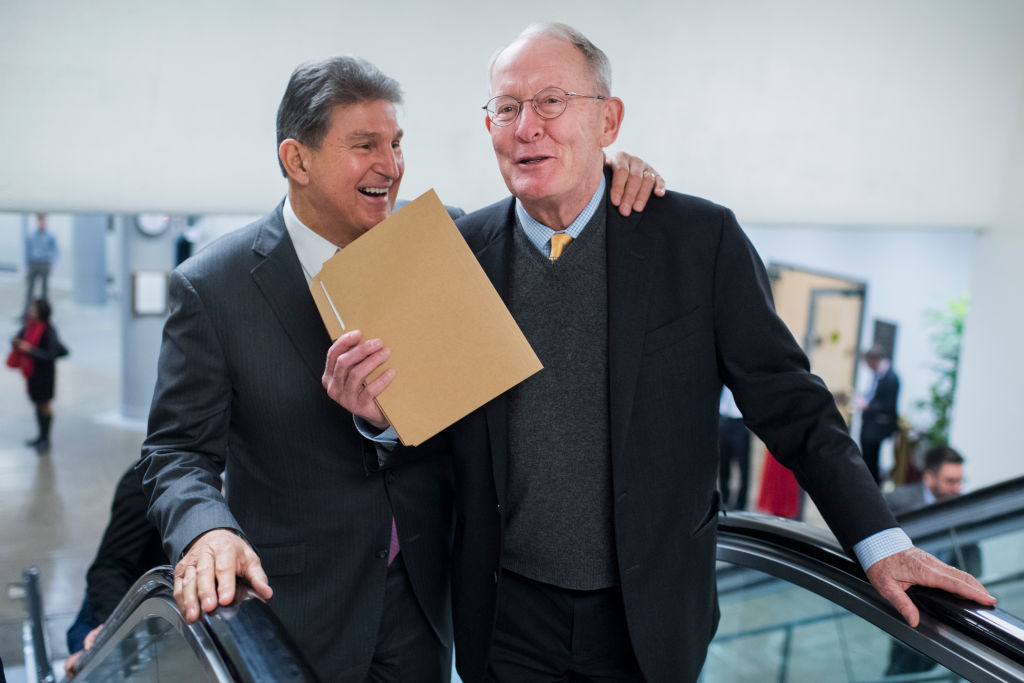A new survey finds Republicans under 40 support a carbon tax 7-to-1. And a remarkable 85% of Republican millennials are concerned that “the current Republican position on climate change is hurting the party with younger voters.”
But what makes this result so striking is that the survey was conducted by Frank Luntz, a top GOP strategist and pollster. Luntz wrote an infamous memo in 2002 detailing the exact words conservatives should use if they want to sound like they care about climate change without actually doing anything about it.
Luntz, for instance, is the one who urged Republicans to use the phrase “climate change,” arguing that it is “less frightening” than “global warming.”
Significantly, Luntz’s firm, which has been polling this issue for decades, reported this week that a Carbon Dividend Plan — which charges fossil fuel companies for their carbon emissions and rebates the money directly back to the public — is uniquely popular.
“This is the first time we’ve polled a climate plan that has real positive appeal across Republicans and Democrats,” Nick Wright, a partner at Luntz Global, told Axios.
Most GOP leaders, however, still only offer climate plans built around Luntz’s 2002 recommendations, which means repeating the poll-tested words “technology” and “innovation” over and over while never committing to anything that might actually start reducing emissions now as the science advises in order to avoid catastrophe.
The Carbon Dividends Plan that Luntz tested is from the bipartisan Climate Leadership Council founded by Ted Halstead along with corporate giants like ExxonMobil, Shell, BP, GM, and Ford. It was co-authored by former Secretaries of State James A. Baker, III and George P. Shultz, and has also been embraced by Americans for Carbon Dividends, an industry-backed group co-chaired by former Sens. John Breaux and Trent Lott.
Luntz surveyed 1,000 voters nationwide earlier this month and found that carbon taxes rebated to the public have 4-to-1 overall support (66% support versus 15% oppose), which is similar to its support level among swing voters. Republicans support the plan 2-to-1 (53% versus 25%), with overwhelming support from Republicans under 40 (75% supporting, 11% opposing).
The carbon tax proposal calls for a steadily rising price on carbon that starts at $40 per ton; a family of four would get about $2,000 in payments in the first year.
Yet, while this price represents a serious start in the effort to reduce carbon pollution, the overall plan is problematic for many environmentalist because of two provisions.
First, the Carbon Dividends Plan would require phasing out “many, though not all, Obama-era carbon dioxide regulations … including a repeal of the Clean Power Plan,” which uses the Clean Air Act to set emissions standards for existing power plants. Second, it would shield fossil fuel companies from climate lawsuits.
“We do not support a plan that preempts existing law or tort liability,” David Doniger, senior strategic director for climate and clean energy programs at the Natural Resources Defense Council, told Think Progress via email. “We want to add tools to the toolbox, not trade them off.”
But the good news is that the survey question that found overwhelming support for putting a price on carbon and rebating the money to consumers did not ask people about preempting lawsuits or undoing existing laws. So, this suggests that there may be room for a climate deal in Congress, assuming the public elects a president who understands the existential nature of the threat.


